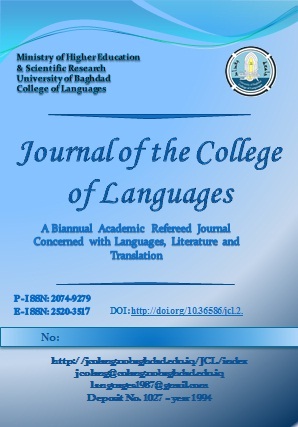Abstract
Deception is an inseparable facet of political discourse in attaining strategic political gains though compromising public opinion. However, the employment of discursive deception strategies by the policy-making institutions of think tanks has not received due attention in the literature. The current study aims at exploring how the ideologizing deception strategies are utilized by the conservative American think tank of the Washington Institute to reproduce socio-political realities and re-shape public opinion. To fulfill this task, van Dijk’s (2000) notion of ideological polarization which shows positive self-representation and negative other representation is adopted to conduct a critical discourse analysis of four Arabic texts released with the main focus on four different political topics. Results reveal the centrality of employing deception strategies for the sake of realizing political wins for establishing an ideological hegemony while simultaneously polarizing an Us against Them extreme.
Keywords
Critical discourse analysis
deception
ideol
Abstract
يُعد الخداع جزءاً لا يتجزأ من الخطاب السياسي لتحقيق مكاسب سياسية إستراتيجية من خلال تقويض الرأي العام. وعلى اية حال فإن توظيف إستراتيجيات الخداع الخطابية من لدن المؤسسات الفكرية المهتمة باقرار السياسات لم تحظى بالاهتمام الواجب في الادبيات .تهدف الدراسة الحالية الى تقصي الطريقة التي توظف بها الموسسات الفكرية الامريكية إستراتيجيات الخداع الايدولوجية بهدف إعادة إنتاج الحقائق الإجتماعية-السياسية وكذلك إعادة تشكيل الرأي العام. ولتحقيق هدف الدراسة ، جرى تبني مفهوم القطبية الآيدلوجية (ideological polarization ) للعالم فان دايك (2000) الذي يشير الى تقديم الذات تقديماً ايجابيا وتقديم الاخرين تقديما سلبيا لاجراء تحليل نقدي لاربعة نصوص عربية نشرها معهد واشنطن -احد الموسسات الامريكية المحافظة- مع تركيز اساسي على اربعة قضايا سياسية مختلفة. تُظهر النتائج الدور المحوري في توظيف إستراتيجيات الخداع في سبيل تحقيق مكاسب سياسية -- لارساء الهيمنة الأيدلوجية وإنشاء قطبية للطرف الاول (We) ضد الطرف الثاني (Them).
Keywords
تحليل الخطاب النقدي، الخداع، القطبية الآيدولو
